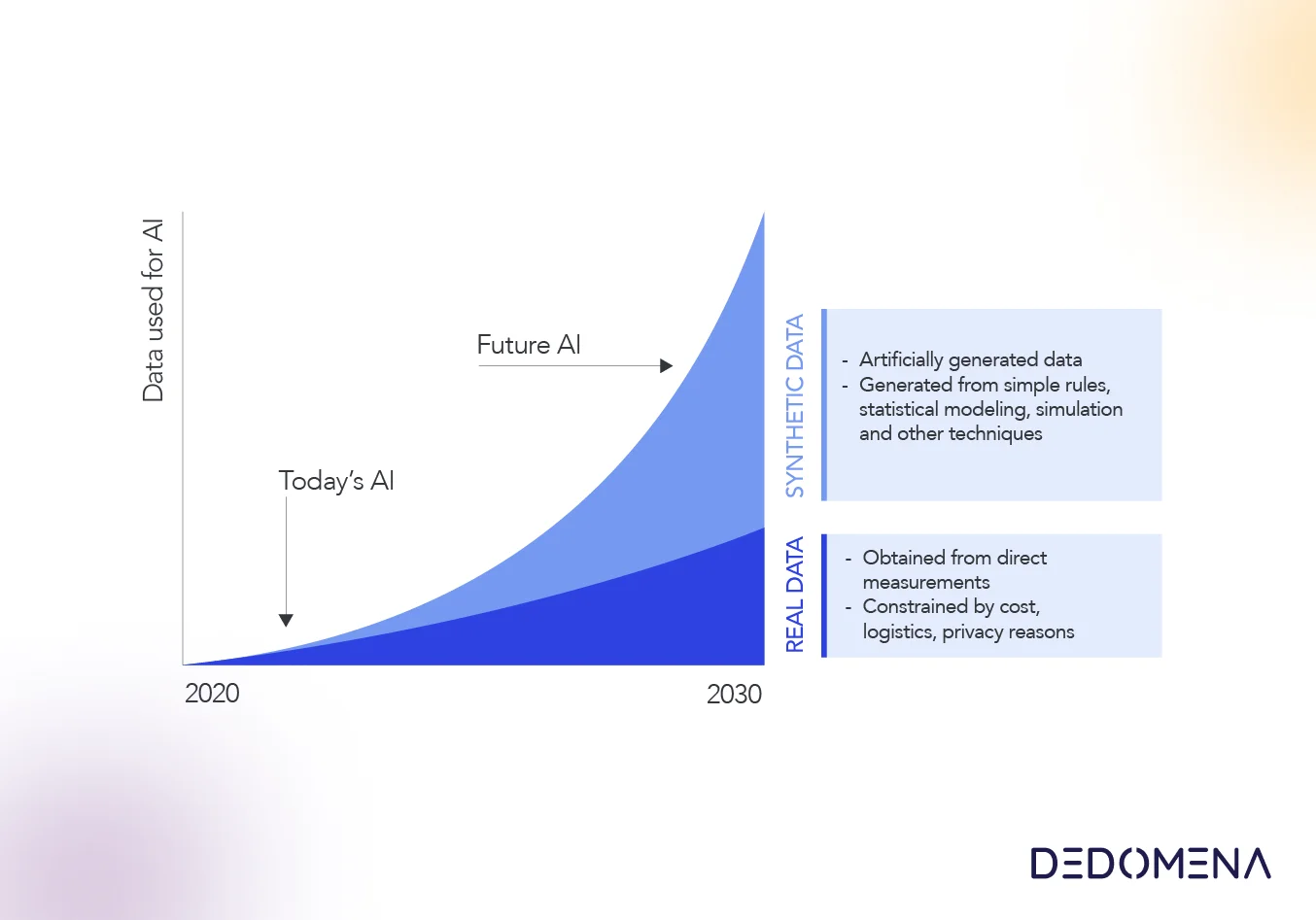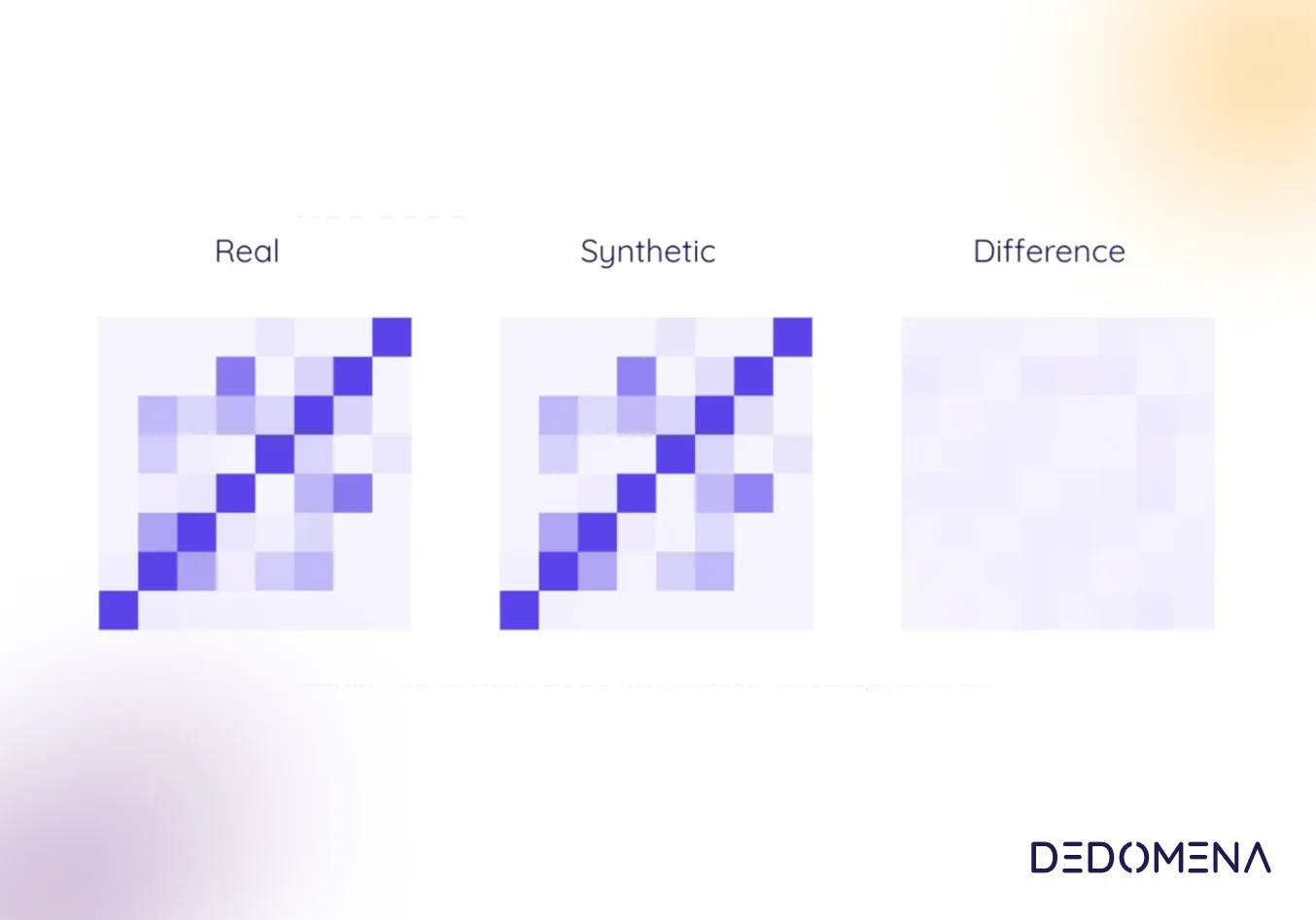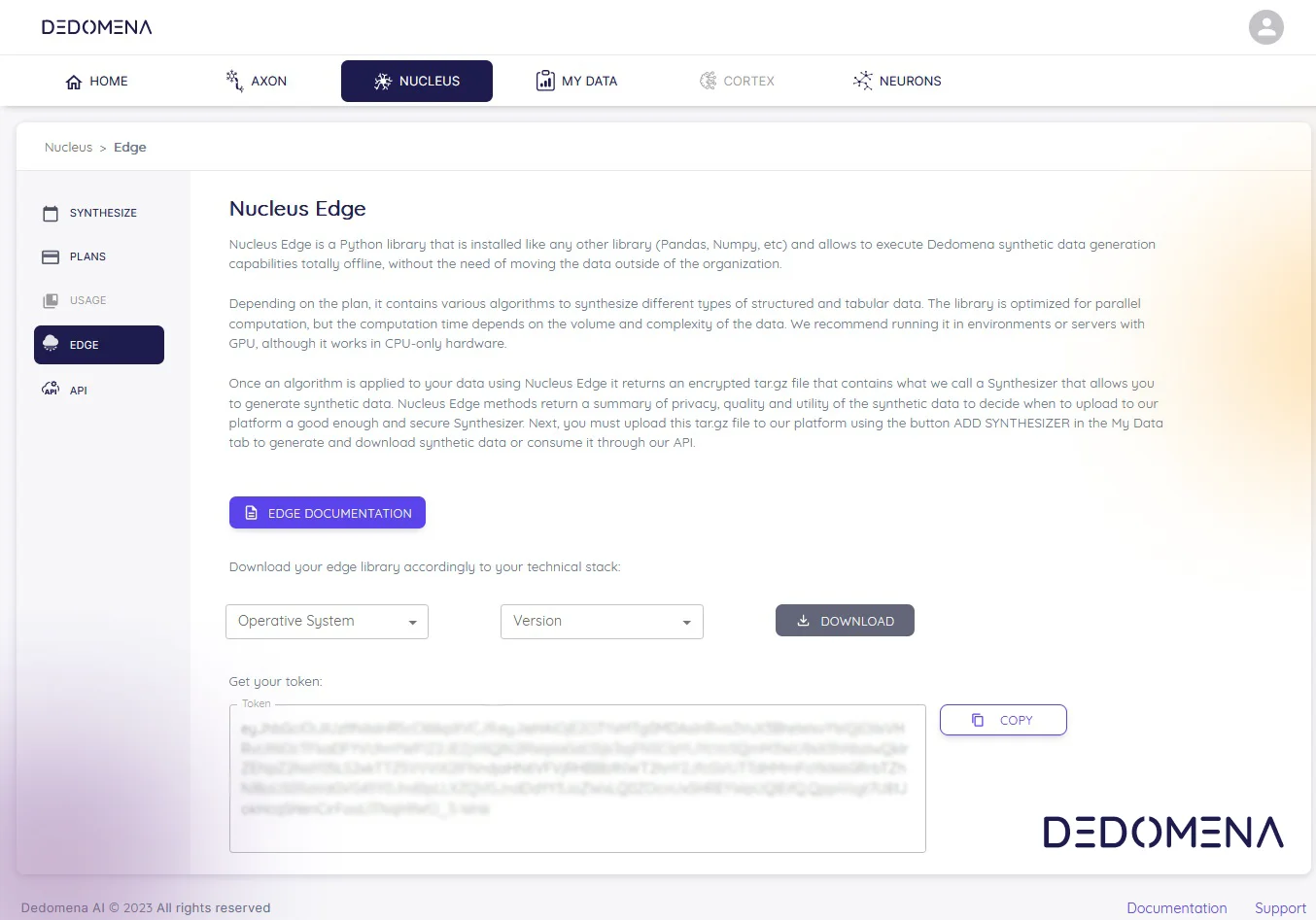According to Gartner's predictions, synthetic data will be the dominant force in AI models by 2030. One key reason driving this shift is the increasing emphasis on privacy. As the fields of data science and artificial intelligence continually evolve, it becomes increasingly important to prioritize privacy while harnessing the power of data. In a landscape that is often highly regulated, processing data can be complex, time-consuming, and fraught with security risks.
One of the most pressing issues related to real data is the ethical and legal challenges surrounding privacy and consent. Synthetic data solutions are emerging as a viable remedy to these concerns. By generating synthetic data, the risk of exposing sensitive personal information within real datasets, which can lead to privacy breaches, legal complications, and ethical dilemmas, can be effectively mitigated.
What is Data Privacy and Why is it so important
So, what exactly is data privacy, and why is it so critical? Data privacy revolves around safeguarding personal data from unauthorized access, ensuring secure storage and processing, securing informed consent for data usage, and complying with relevant privacy laws and regulations. Personal data encompasses a wide range of information, including names, physical addresses, email addresses, Social Security numbers, passport numbers, financial account details, medical records, biometric data, and more.
Data protection holds immense significance for several reasons. It preserves privacy, prevents data misuse, ensures compliance with regulations, fosters customer trust, facilitates informed decision-making, and contributes to cybersecurity mitigation. Effective data protection reduces an organization's vulnerability to cyber threats, making it an integral aspect of overall cybersecurity efforts.
One approach that has gained momentum in addressing these concerns is privacy-preserving synthetic data. This concept involves generating artificial data that maintains essential statistical characteristics and patterns from an original dataset while safeguarding individual privacy. By deploying advanced machine learning models and algorithms, organizations can create a new dataset suitable for various analytical and developmental purposes without revealing sensitive information about the individuals in the original data.
Benefits of privacy-preserving synthetic data
Privacy-preserving synthetic data offers numerous advantages to organizations. It embeds privacy in processes, ensures secure data processing, enhances efficiency and flexibility in data access, and enables the full potential of data usage without compliance worries. Additionally, it promotes collaboration and secure data sharing, facilitating collaborative projects and research while maintaining data security and privacy compliance.
In a landscape where data protection laws are strengthening, and individuals are advocating for increased privacy, privacy-preserving synthetic data serves as a powerful tool for organizations to fortify their sensitive data. This approach allows them to thrive in a data-centric and innovative environment while mitigating the risks associated with data breaches. Generating privacy-preserving synthetic data represents a pivotal step towards achieving both privacy and progress in the realm of AI and data science. It holds the promise of revolutionizing data handling and usage, creating a future where privacy and data-driven insights coexist harmoniously. Striking this balance between data potential and individual privacy is the key to shaping a more responsible and effective AI landscape.

















































